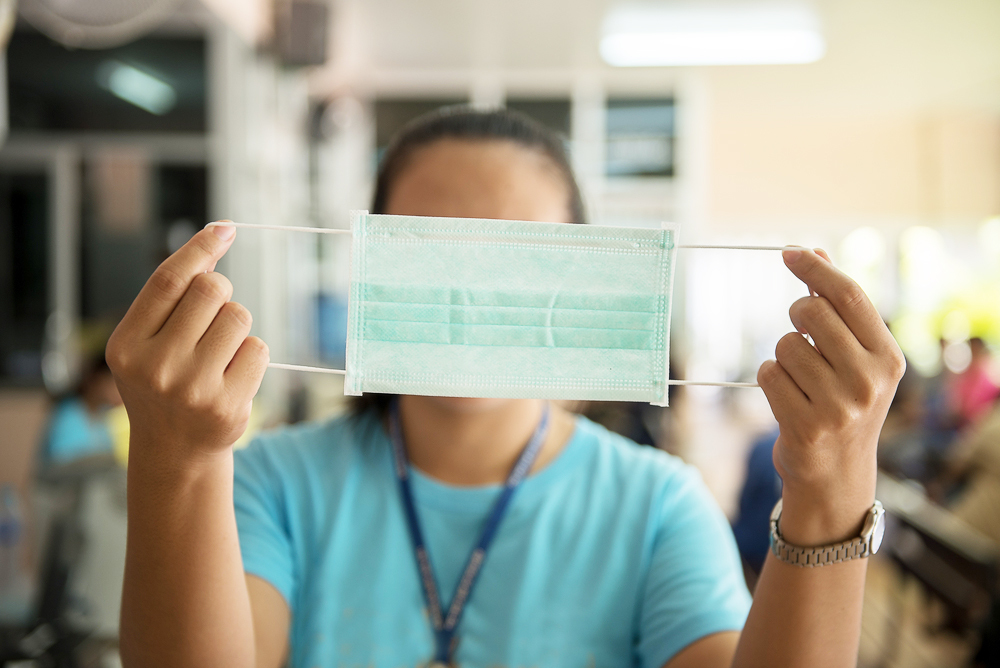
Strains of a rare virus that has been blamed so far for killing 10 children and sickening dozens of others in New Jersey pediatric-care facilities have Baltimore doctors on alert for an outbreak here.
According to New Jersey state health authorities, there have been 27 cases of the adenovirus infection at the Wanaque Center for Nursing and Rehabilitation center in Haskell, New Jersey, where the affected children had severely compromised immune systems. One death was a young adult.
The state also confirmed to the Associated Press four adenovirus cases among pediatric patients at New Jersey’s Voorhees Pediatric Facility, just across the river from Philadelphia, but preliminary tests suggest it’s a different strain of the virus.
The department said it’s working with the Centers for Disease Control and Prevention to monitor the illness and announced earlier this week that infection control teams were being sent to New Jersey’s four long-term pediatric centers to help with training.
At Baltimore hospitals, doctors are watching carefully for the spread of the virus, says pediatric infectious disease specialist Dr. James Campbell, who is also a professor of pediatrics at the University of Maryland School of Medicine.
“We have been following the events of this institutional adenovirus outbreak and our hearts go out to the patients, families, and staff [in New Jersey],” says Campbell. “Adenoviruses are a common cause of respiratory diseases and may also cause gastrointestinal illness. The illnesses they cause range from very mild to life-threatening. More common manifestations are things like the common cold, sore throat with pink eye, and ear infections. In some people, they can cause pneumonia, heart infections, or other serious diseases.”
Particularly at risk are those with compromised health, he says. “These more serious problems tend to occur in people with underlying medical problems or problems with fighting off infections. Institutional epidemics of pneumonia can occur in dormitories, military barracks, and other places, like chronic-care facilities.”
Campbell says adenoviruses are spread by “respiratory droplets,” just like other viruses that cause colds and pneumonias. “That means that you get them when people sneeze or cough near you or you shake hands or touch surfaces where others were sneezing or coughing,” he says. “The best way to reduce your risk of infection is by hand washing.”
At Mt. Washington Pediatric Hospital, infection prevention coordinator and R.N. Erica Jones echoed the increased danger such viruses pose to the very young, medically fragile, or hospitalized children.
Jones says that, besides hand washing (use an alcohol-based hand sanitizer when soap and water aren’t available), there are other steps people can take to avoid spreading viruses. “Avoid close contact with other people, especially infants or children who may be immune-compromised, stay home from work and school when you are sick to help prevent spreading illness, and cover your mouth and nose with a tissue when coughing or sneezing,” she says.
As someone who deals with very sick kids every day, Jones tries to empower parents to speak up for the safety of their children.
“Parents often tell me they are uncomfortable speaking up when strangers approach their infant or child wanting to touch their hands or belongings,” she says. “A well-intended gesture can prove harmful if germs are passed along. I also let parents know that when their child goes home, it is okay to remind family members and friends not to visit when sick and to wash their hands.”
Hospitals take other steps, too, to avoid spreading illnesses, says Dr. Aaron Milstone,
a Johns Hopkins Hospital epidemiologist and associate professor of pediatrics at Hopkins School of Medicine. “In a health-care setting, we also require our staff to wear personal protective equipment, such as gloves and gowns, when treating patients with contagious infectious diseases,” he says.
And they’re always on the lookout for such viruses: “Adenoviruses are common and can be detected with available tests, but at Johns Hopkins’ five hospitals in Maryland and Washington, D.C., we are seeing a low and typical number of cases.”
